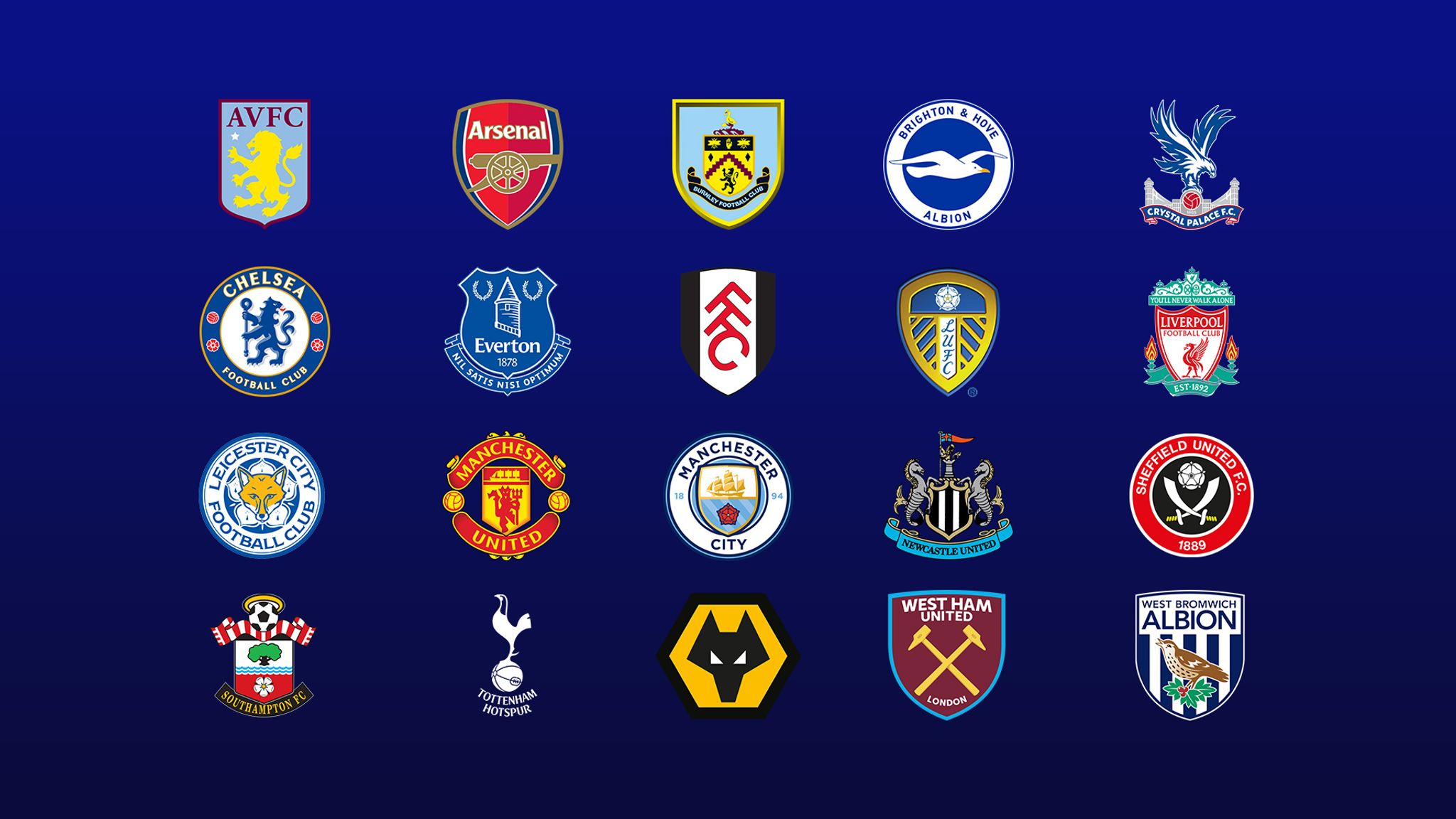Sports
How to Make a Premier League Team Profitable

Shockwaves rippled through the footballing world this week after it was confirmed Newcastle Football Club has been bought out in a £300m deal, ending owner Mike Ashley’s 14-year tenure.
The takeover leaves Newcastle in the hands of the Saudi Arabia Public Investment Fund (PIF), which now owns 80% of the club. The other 20% is split evenly between Amanda Staveley and the Reuben brothers.
After years of frustration and disappointment, Newcastle fans are now full of hope for the future as their new owners are the wealthiest in the sport, worth an eye-watering £700bn. To put that into context, Manchester City previously had the wealthiest owners in the Premier League, who are worth £23bn.
That is not to say Newcastle is now worth £700bn, but they will now have a war chest which dwarfs all others, giving them the financial means to bring in big players.
This news might tempt you to check a major football betting site like 888Sport to see what Newcastle’s chances are of winning the Premier League this season, but their odds remain largely unchanged. City are still hot favourites to lift the trophy at odds of roughly 10/11.
So, besides a takeover from a wealthy consortium, how do Premier League clubs make their money? Their biggest revenue stream comes from television broadcast rights for the league.
The English top-flight is the most popular league in the world, in any sport; the viewing figures back this up. As such, the cost of domestic broadcast rights are astronomically high; they’re now in the billions.
Sky Sports and BT Sport are the two main contenders for this content, though Amazon Prime and the BBC also contribute.
Exactly half – 50% – of this revenue is split evenly between the 20 Premier League clubs. A further 25% is then distributed according to how many times a team is broadcast live (these are known as facility fees) and the final 25% is based on where a team places in the league (merit fees).
So, a team that is shown live on TV more often will receive a larger chunk of the facility fees, and likewise, a club that finishes high up in the league table will be rewarded with higher merit fees revenue.
This, in theory, should create more of a meritocracy and allow clubs to earn more money based on their performances. However, in reality, big clubs like Liverpool, Chelsea and Manchester United will always get more airtime and, thus, more money.
International broadcast rights revenue is split evenly between the 20 clubs, however, those that make it into the Champions League will get even more funds from TV rights. This is because of separate deals for this competition, and the amount they get largely depends on how far they go in the Champions League.
The TV rights battle only properly boomed over the past decade or so, leading to the staggering figures that are forked over by broadcasters nowadays, which only seem to keep growing.
A more traditional form of revenue for clubs are ticket sales. Clubs will charge each and every person that attends a game for their seat in the stadium, and these prices will vary depending on their position in the venue and the context of the game itself. A London derby between Chelsea and Tottenham will cost more to attend than a game against Aston Villa at Stamford Bridge.
Clubs will also make money from season ticket holders, who will pay a lump sum to have tickets in the same seats for every home game for their team.
On top of this, most Premier League clubs also offer exclusive hospitality and business packages to those willing to splash out on game day. These are particularly attractive to companies that want to impress clients or reward their colleagues. These packages cost a lot more than regular tickets and can be decent earners for Premier League clubs.
In a similar vein, major clubs provide tours of their stadiums outside of match days, charging people to look around and inside the venue to get a closer feel.
Aside from ticket sales, clubs will also be charging for food and drink inside the stadium, and these can generate huge sums of money when totalled up.
Then, of course, there is merchandise. Clubs will have their own shops and stalls on site that sell things like shirts and scarves, but they also have websites where fans can purchase these items as well.
Last, but certainly not least, are the shirt sponsor deals that Premier Clubs can command. Brands like Chevrolet and Yokohama pay tens of millions of pounds to have their logo featured prominently on the shirts of players, providing these teams with yet more income.
However, it isn’t all plain sailing, even for the world’s biggest football teams. Just look at FC Barcelona, who are facing the worst financial crisis in their long history. Their debt is over the £1bn mark, and they have a lot of work to do before they’re out of it.
A large part of their problems stem from player salaries which, according to club president Joan Laporta, represents 103% of their total income. Obviously, such a business model is not sustainable, particularly as they will have many other costs elsewhere.
Obviously, managing the finances of a major football club is no easy task and while it’s not possible to get a detailed look at exactly what has gone wrong at Barcelona, it’s clear that inflated salaries have been a huge issue.
Premier League clubs earn revenue from numerous streams, some of which aren’t wholly under their control but will still have a significant impact on their bottom line. Salaries will be their main outgoing so, as long as they can keep these in check, profits should come.
Sports
How Nigeria’s New Tax Rules Could Reshape Sports Betting

As 2024 comes to a gradual end and companies begin to make plans for the new year, the Nigerian sports betting industry is faced with a new year’s resolution which it didn’t make but has been imposed on it by this political administration- the dilemma of withholding tax regulations.
The introduction of this new tax regime could fundamentally alter the sports betting landscape, affecting everything from operator profits to punter behaviour and industry growth.
Once the new regulations come into effect on January 1, 2025, eligible transactions for winnings in i-gaming shall incur applicable rates of 5% for residents and 15% for non-residents.
For Managing Partner, WYS Solicitors & Legal Counsel Africa, Olafadeke Akeju, the fact that i-gaming is largely online means this new tax regime may cause of exodus of customers from licensed operators to illegal remote operators, due to the uncaptured and unprotected nature of the digital space:
“For those who are unlicensed and foreign operators, they will still be able to owe tax to players and offer better odds and better returns because there is no deduction or withholding tax. What this means is that licensed operators will lose customers to the illegal and remote operators, that is the likely implication, as there could be a significant drop in patronage once this withholding tax kicks off.”
Akeju also struggles to understand how this tax would apply to walk-in customers who mostly require age verification but may not require identity verification- especially because this regulation exempts over-the-counter transactions.
Velex Advisory Tax Expert, Jonathan Nwanze is also keen to see how this tax regime would be implemented, but he is more worried about the likelihood that the Tinubu administration, “could be creating a monster asking for remittance without the capacity to check it.”
Nwanze explains that the introduction of withholding tax is not novel, as it occurs in other countries in West Africa like Ghana. However, what makes Nigeria’s exceptional is the timing, investment and the market size:
“It’s not the first time it’s been introduced. However, some of the aforementioned markets cannot be compared to the Nigerian market in terms of size, Nigeria is way bigger. Some are more regulated because of the kind of structure they have. For instance, in Ghana, there are regions, not states and there is one revenue collection body. In Nigeria, we have states, but numerous bodies at various levels of government collect revenue. I think the government has to invest in a lot of technology. If they are looking at getting a lot out of gaming, there must be investment in infrastructure,” Nwanze told sports and betting news site, SportsBoom.com.
What’s the rush?
Nigeria’s economy has been on a steady decline due to a number of factors including the poor timing of policies. For the implementation of withholding tax, it’s equally symptomatic of poor timing, grey areas and an inherent lack of understanding about the i-gaming ecosystem.
Akeju explains that in order for betting operators to comply with the provisions of the new tax regime, there must be upgrades across the betting platforms and since the software/ platform providers aren’t local, the operators need to get in line for an estimated 6 to 9 months before their platforms are upgraded.
She thinks it’s highly likely that: “we could potentially have a situation whereby on the 1st of January 2025, operators won’t be able to comply due to circumstances beyond their control.”
Apart from playing the waiting game, the cost of upgrading betting platforms equally poses a huge financial burden. Akeju explains that while larger betting operators own their betting platforms, the same cannot be said for smaller operators:
“The platforms which smaller operators use for gaming are owned by third parties with whom they have white label agreements. Hence, implementing the withholding tax right now is going to be a challenge for those operators as it would require them to pay for developers, pay for customization and pay for integration of the platforms to suit the regulation in question.”
An eternal optimist may ask, What about alternative revenue streams? Is there any that betting companies could explore to offset the impact of these new taxes? Akeju makes it clear that the operators are caught between a rock and a hard place- that’s because offering a new product translates to applying for another license for the product in question.
Sadly, the alternative products’ providers are primarily based in Europe, which means more cost would be incurred by the operator in Euros.
Akeju is very concerned about how the smaller operators will keep their customers and while she may not have a universal solution for the Nigerian i-gaming industry as a whole, she may have a potential solution for bigger operators, but that entails their willingness to assume a sacrificial role by choosing to “absorb this withholding tax on behalf of their players or offer certain bonuses and promotions that could boost winnings so that players do not really feel the effect.”
A misconception & an opportunity
On Friday, November 22, 2024, the Supreme Court nullified the National Lottery Act and scrapped the National Lottery Regulatory Commission (NLRC). During a crucial meeting held days before the judgment, the Director General of the now defunct NLRC, Lanre Gbajabiamila, made a profound statement about the assumption that the i-gaming industry is a billion-dollar industry:
“How do we know it’s a billion-naira industry? There’s no data to show. Anybody can say it’s worth billions of naira, but until we have proper data, we can’t safely say what the industry is worth.”
Just like Gbajabiamila, this is a perception which Nwanze seeks to correct, and he thinks it may have a lot more to do with this new regulation than we realize:
“The government appears to be keen on generating revenue, but the challenge lies with the timeline – Jan 2025 is not feasible. If you look at best practices as is the case in the UK- there is no collection of withholding tax and that’s because the responsibility of taxes should sit with the company that owns the business. The reason is that the companies make more profit than the players. If you look at the number of losses compared to winnings, you’ll be shocked at how high the former is compared to the latter. In fact, the way the business is structured, it’s from those losses that winnings are paid. I think the government should review its position and opt for more engagement regarding the nature, implementation, application and configuration of this plan.”
Now that the NLRC has been dissolved, there might be an opportunity for states that may choose to opt out of this tax and while the implementation has yet to play out, Nwanze thinks that some states may see exemption as an opportunity to attract more betting companies to their states.
Legal options & absence of meaningful stakeholder engagement
With all the negative hits that the Nigerian i-gaming industry has taken in 2024, is it simply at the mercy of the government policies/ regulations, or could legal options be explored to push back? Akeju explains that “the law is made for man and not vice versa.”
While she is hopeful that the government will do a 180 when it sees the negative impact this tax will have, as was the case in the most regulated market in the world- the UK; she is fearful of Nigeria’s reputation and pace when it comes to repealing laws and regulations.
Akeju recalls attempts made by stakeholders to dialogue with the government on this matter and narrates a scenario which is reminiscent of intentional exclusion until a decision was made:
“The association of Nigerian bookmakers engaged with the presidential committee on fiscal policies and tax reforms. We had a few meetings, but it appeared as though by the time the industry was aware of many of the decisions that were taken by the government, it was at an advanced stage. Now that it has been passed, efforts are still being made for a guidance note to clarify some of the grey areas.”
Akeju and Nwanze make their final appeal by asking the government to focus its taxation efforts on the operators and not the players to make for a more streamlined and better-defined application that is understood by all involved.
Conclusion
As Nigeria’s sports betting industry braces for the 2025 withholding tax storm, both legal and tax experts sound a unified alarm: taxing players instead of operators could backfire spectacularly.
With Akeju warning of an exodus to illegal operators and Nwanze questioning the government’s monitoring capacity, the consensus is clear – this rushed regulation could transform Nigeria’s gaming landscape into a wild west of unregulated betting.
The irony? In pursuing additional revenue, the government might end up with a smaller piece of an increasingly fragmented pie. As the countdown to January 2025 begins, the industry’s message is simple: hit pause, rethink the approach, and focus on operators, not players.
Sports
The Future of Betting With Blockchain and Artificial Intelligence at 1win Bet

In the ever-evolving landscape of the casino gaming industry, the integration of cutting-edge technologies like blockchain and artificial intelligence (AI) is poised to redefine the way we approach online betting. As an experienced player in the field, I am excited to explore how these transformative innovations are shaping the future of casino gaming, with a particular focus on the advancements at 1win-betting.org.
Blockchain, the distributed ledger technology that underpins the world of cryptocurrencies, has the potential to revolutionize the casino gaming industry by introducing a new level of transparency, security, and fairness. Meanwhile, the rapid advancements in AI have opened up a world of possibilities, enabling casino operators to enhance the player experience, streamline operations, and mitigate risks.
Understanding the Benefits of Blockchain Technology in Betting
Blockchain technology offers a unique solution to the longstanding challenges faced by the casino gaming industry, particularly when it comes to transparency and trust. By design, blockchain is a decentralized, immutable, and secure digital ledger that records all transactions in a transparent manner, making it an ideal platform for online betting.
One of the key advantages of blockchain in casino gaming is the concept of “provably fair” gaming. This approach ensures that the outcome of each game is verifiable and cannot be manipulated, as the underlying algorithms and random number generation are recorded on the blockchain. Players can independently verify the fairness of the games, instilling a new level of confidence in the gaming process.
The Role of Artificial Intelligence in Revolutionizing Casino Gaming
Alongside the transformative potential of blockchain, the integration of artificial intelligence is also reshaping the casino gaming industry. AI-powered systems are being employed to enhance the player experience, optimize operations, and mitigate risks.
One of the most prominent applications of AI in casino gaming is the development of personalized player recommendations and predictive analytics. By analyzing player behavior, preferences, and patterns, AI-driven algorithms can suggest personalized game selections, promotions, and bonuses, creating a more engaging and tailored experience for each user.
Moreover, AI is being leveraged to streamline the decision-making process for casino operators. Through the use of machine learning algorithms, AI can identify and analyze trends, predict player behavior, and optimize resource allocation, ultimately improving the overall efficiency and profitability of the casino’s operations.
Exploring the Concept of Provably Fair Gaming on the Blockchain
At the heart of the blockchain revolution in casino gaming is the concept of “provably fair” gaming. This innovative approach ensures that the outcomes of casino games are verifiable and cannot be manipulated, instilling a new level of trust and transparency for players.
The provably fair system works by leveraging the immutable nature of the blockchain to record the underlying algorithms and random number generation (RNG) used in each game. Players can independently verify the fairness of the games by accessing this transparent data, ensuring that the results are not subject to any external interference or manipulation.
This level of transparency is a game-changer in the casino gaming industry, as it addresses long-standing concerns about the fairness and integrity of online betting. By empowering players to validate the outcomes of their bets, blockchain-based platforms like 1win are fostering a new era of trust and confidence in the industry.
How Blockchain and AI Enhance Security and Transparency in Online Betting
The integration of blockchain and artificial intelligence in casino gaming has not only improved the fairness and transparency of the industry but has also significantly enhanced the overall security of online betting.
Blockchain’s decentralized nature and cryptographic security features make it an ideal platform for secure transactions and data storage. By recording all betting activities on the blockchain, casino operators can ensure that player funds and personal information are protected from unauthorized access or manipulation.
Furthermore, the use of AI-powered fraud detection systems further strengthens the security measures in place. These intelligent algorithms can analyze transaction patterns, identify suspicious activities, and trigger immediate response protocols, effectively mitigating the risk of fraud and theft.
The Future of Betting with Blockchain and AI at 1win
As the casino gaming industry continues to evolve, the synergistic integration of blockchain and artificial intelligence is poised to shape the future of online betting. At the forefront of this revolution is 1win, a leading platform that has embraced these transformative technologies to redefine the player experience.
1win’s commitment to blockchain-based betting is evident in its implementation of the provably fair system, which empowers players to verify the fairness of each game. By transparently recording the underlying algorithms and RNG on the blockchain, 1win has established a new standard of trust and transparency in the industry.
Complementing this blockchain-powered approach, 1win has also leveraged the power of artificial intelligence to enhance the overall player experience. From personalized game recommendations to intelligent risk management, AI-driven systems are integrated throughout the platform, ensuring that players enjoy a seamless and tailored betting journey.
Conclusion
The convergence of blockchain and artificial intelligence in the casino gaming industry is ushering in a new era of trust, transparency, and innovation. By leveraging the inherent benefits of these transformative technologies, platforms like 1win are redefining the way we approach online betting, creating a more secure, fair, and engaging gaming experience for players.
As we look to the future, the continued integration of blockchain and AI in casino gaming holds the potential to revolutionize the industry, addressing long-standing challenges and paving the way for a more trustworthy and transparent betting landscape. With its commitment to provably fair gaming, enhanced security measures, and personalized player experiences, 1win is at the forefront of this technological revolution, leading the charge in shaping the future of casino gaming.
Sports
FIFA Picks Saudi Arabia to Host 2034 World Cup

By Adedapo Adesanya
Saudi Arabia has been confirmed as the host nation for the 2034 FIFA World Cup.
Also confirmed were the hosts for the 2030 World Cup, which was awarded to six countries and will take place across three continents to celebrate 100 years of the tournament.
Saudi Arabia was the sole bidder for the 2034 competition. Its host status was confirmed on Wednesday after an online meeting of the 211 members of the International Federation of Association Football (FIFA).
The members confirmed the unchallenged bids by acclamation – simply clapping during the virtual meeting led by FIFA president, Mr Gianni Infantino.
As well as the World Cup, Saudi Arabia is hosting football’s 2027 Asian Cup, the 2029 Asian Winter Games and the 2034 Asian Games. It also has long-term ambitions to host more major events, including the Women’s World Cup.
The 2030 tournament will be led by co-hosts Spain and Portugal in Europe, and Morocco in North Africa. Uruguay, Paraguay and Argentina will each hold an opening match to mark 100 years since the first World Cup took place in Uruguay in 1930, a tournament that the South American nation won.
The next World Cup in 2026 will be co-hosted by three proximal nations in North America— the US, Canada, and Mexico.
Saudi Arabia first published its bid for the World Cup back in August 2024 after FIFA controversially fast-tracked the process for hosting the tournaments in 2030 and 2034.
The bid for the 2034 tournament has led to criticism from activist groups, who argue that Saudi laws will not protect workers overseas.
Some of the issues echoed that of the 2022 tournament held in Qatar.
The tournament will require the construction of eight new stadiums, for a total of 15 hosting venues, plus the addition of 175,000 hotel rooms, which will rely heavily on migrant labour.
Critics of FIFA also insist a Saudi-based World Cup risks a repeat of the rights abuses seen during a decade of similar preparations for the 2022 World Cup in Qatar.
FIFA previously praised the Saudi bid in an in-house evaluation, noting that the 48-team, 104-game tournament offers “significant opportunities for positive human rights impact”.
However, it added that Saudi Arabia must invest “significant effort and time” to comply with international standards.
-

 Feature/OPED5 years ago
Feature/OPED5 years agoDavos was Different this year
-
Travel/Tourism8 years ago
Lagos Seals Western Lodge Hotel In Ikorodu
-

 Showbiz2 years ago
Showbiz2 years agoEstranged Lover Releases Videos of Empress Njamah Bathing
-

 Banking6 years ago
Banking6 years agoSort Codes of GTBank Branches in Nigeria
-

 Economy2 years ago
Economy2 years agoSubsidy Removal: CNG at N130 Per Litre Cheaper Than Petrol—IPMAN
-

 Banking2 years ago
Banking2 years agoFirst Bank Announces Planned Downtime
-

 Sports2 years ago
Sports2 years agoHighest Paid Nigerian Footballer – How Much Do Nigerian Footballers Earn
-

 Technology4 years ago
Technology4 years agoHow To Link Your MTN, Airtel, Glo, 9mobile Lines to NIN












